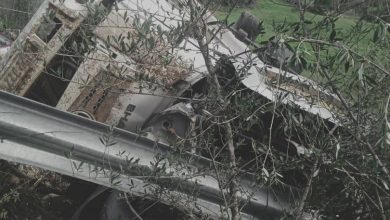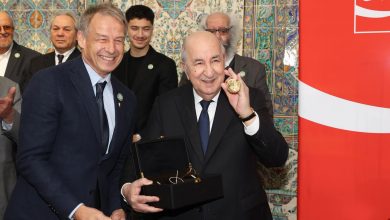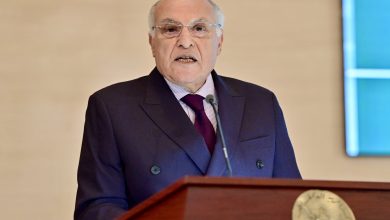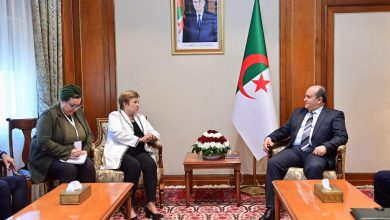Brussels – The United Nations Personal Envoy for Western Sahara, Staffan de Mistura, has presented a briefing in Brussels outlining the implications of the newly adopted UN Security Council Resolution 2797 (2025) on the long-standing Western Sahara dispute. According to de Mistura, the resolution aims to inject fresh momentum and political will into stalled negotiations, offering a framework for progress after years of deadlock.
De Mistura emphasized that Resolution 2797 provides “a clear framework for negotiations without predetermining the outcome.” He stressed that a lasting solution must emerge from “good faith negotiations” between all parties involved, specifically mentioning Morocco and the Polisario Front.
The resolution arrives at a critical juncture in the decades-old conflict. The Western Sahara, a disputed territory on the northwest coast of Africa, has been the subject of contention between Morocco and the Polisario Front, which seeks independence for the region. Morocco claims sovereignty over the territory and proposes an autonomy plan under Moroccan rule, while the Polisario Front insists on a referendum on self-determination for the Sahrawi people.
According to sources familiar with the briefing, De Mistura outlined his intention to call upon all parties to present their proposals and observations on achieving a just and mutually acceptable solution. He specifically noted that he expects Morocco to present an “expanded and updated autonomy plan” in line with King Mohammed VI’s previous pronouncements. While acknowledging Morocco’s 2007 autonomy initiative as a “basis for negotiations,” Resolution 2797, according to de Mistura, does not preclude considering the Polisario Front’s proposals or the observations of other stakeholders. This approach signals a potential effort by the UN to restore balance to a process that, in recent years, has been perceived by some as leaning in favor of Morocco.
The issue of self-determination remains central to the UN’s approach. Responding to a question from *Al-Quds Al-Arabi* newspaper regarding the compatibility of the Moroccan autonomy proposal with the principle of a just and lasting solution agreed upon by both parties, de Mistura stated that the resolution was “carefully crafted, with every word carrying a message.” He highlighted several key elements within the text, including the reaffirmation of the principle of self-determination, alongside the recognition of Morocco’s sovereignty, commitment to the UN Charter, and the necessity of reaching a “mutually agreed-upon” solution.
“There is talk of genuine autonomy, not just autonomy,” de Mistura added, “which opens the door to more realistic and serious negotiations about the future of the region.” This subtle but significant distinction suggests a potential willingness to explore various forms of autonomy that go beyond a superficial arrangement. The phrasing indicates a desire for a robust and meaningful level of self-governance for the Sahrawi people, within a framework that addresses Morocco’s concerns.
For more information about Algeria, check our dedicated section.
De Mistura addressed the delicate balance within the resolution, asserting that the reference to Moroccan sovereignty does not negate the core principle of self-determination. He emphasized that the resolution “leaves space open for constructive ideas,” indicating that the UN is not committed to any pre-determined outcome but instead seeks to facilitate a genuine negotiating process. This process could potentially evolve from limited engagements to broader and more open discussions in the future.
The UN envoy also welcomed the extension of the mandate of the United Nations Mission for the Referendum in Western Sahara (MINURSO) until the end of October 2026. He stated that MINURSO’s presence on the ground “contributes to creating a stable environment to accompany the upcoming negotiating process.” He further clarified that the resolution grants him and the UN Secretary-General a clear mandate not only to facilitate but also to lead the upcoming negotiations without preconditions, providing them with greater flexibility to bring the parties back to the negotiating table. This leadership role is crucial for navigating the complex political dynamics and ensuring that the negotiations remain focused on achieving a tangible outcome.
The Polisario Front has long called for a referendum on self-determination, a position supported by numerous international resolutions and legal opinions. Morocco, however, has resisted holding a referendum that includes the option of independence, arguing that it would lead to instability in the region. The Moroccan government proposes an autonomy plan that would grant the Sahrawi people a degree of self-governance within Morocco, but this proposal has been rejected by the Polisario Front, who maintain that it does not meet the requirements for self-determination.
De Mistura concluded his briefing by emphasizing that he would not speak on behalf of any party but would continue his consultations with the Polisario Front and all relevant stakeholders in implementing the new resolution. In essence, the UN envoy is seeking to reaffirm the core mission of the UN: no sovereignty without recognition of the right to self-determination, and no self-determination without genuine dialogue between the parties.
This delicate balance between text and intent underscores De Mistura’s effort to keep the flame of a potential resolution alive in one of Africa’s longest and most complex conflicts. Whether this latest diplomatic push will succeed in breaking the decades-long impasse remains to be seen. However, the commitment to dialogue and the reaffirmation of fundamental principles offer a glimmer of hope for a peaceful and lasting settlement of the Western Sahara dispute. The coming months will be critical in determining whether the parties are willing to engage in good faith negotiations and compromise to achieve a mutually acceptable outcome. The international community will be closely watching to see if this new impetus can finally lead to a breakthrough in this protracted conflict. The stability of the region, and the well-being of the Sahrawi people, depend on it.




